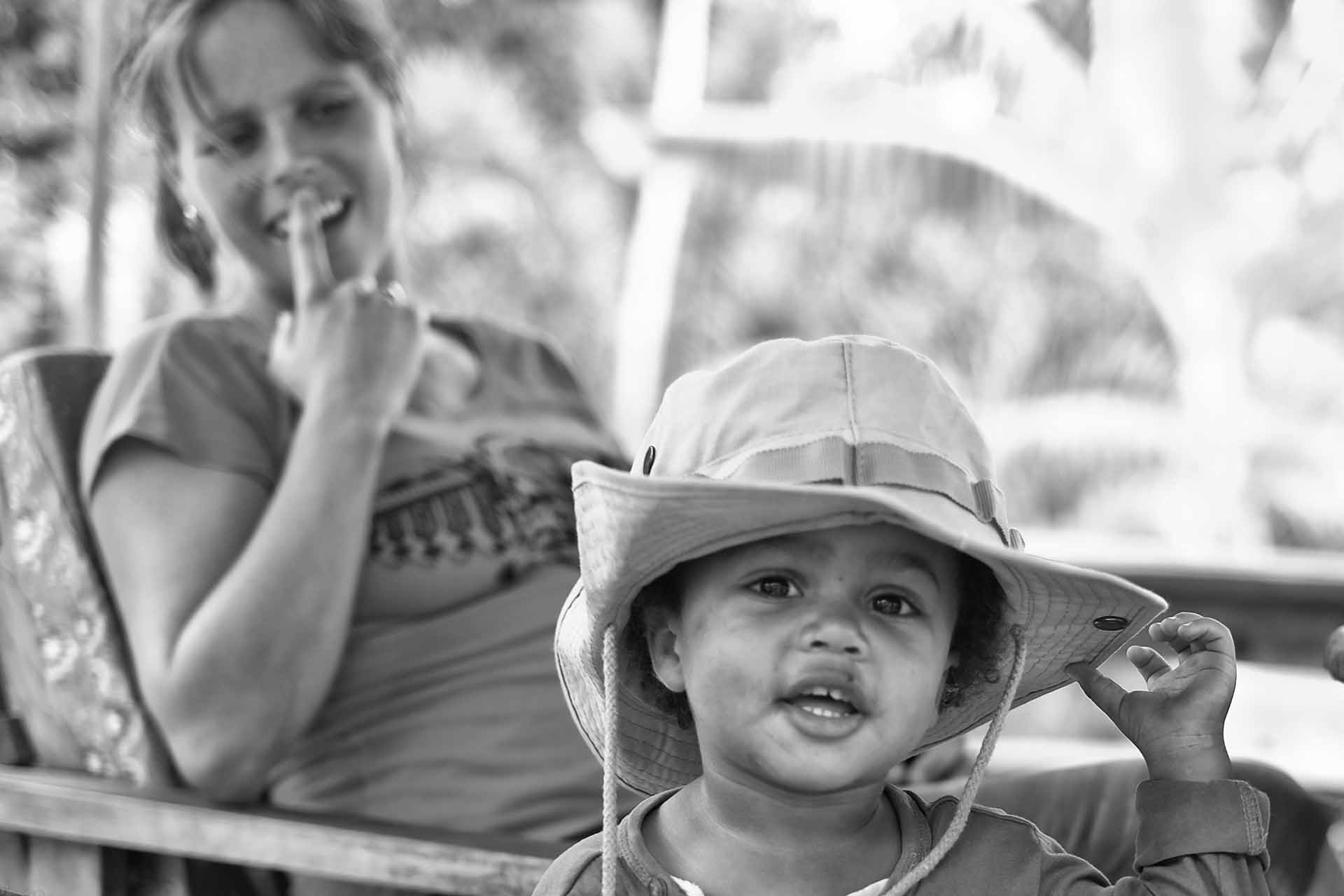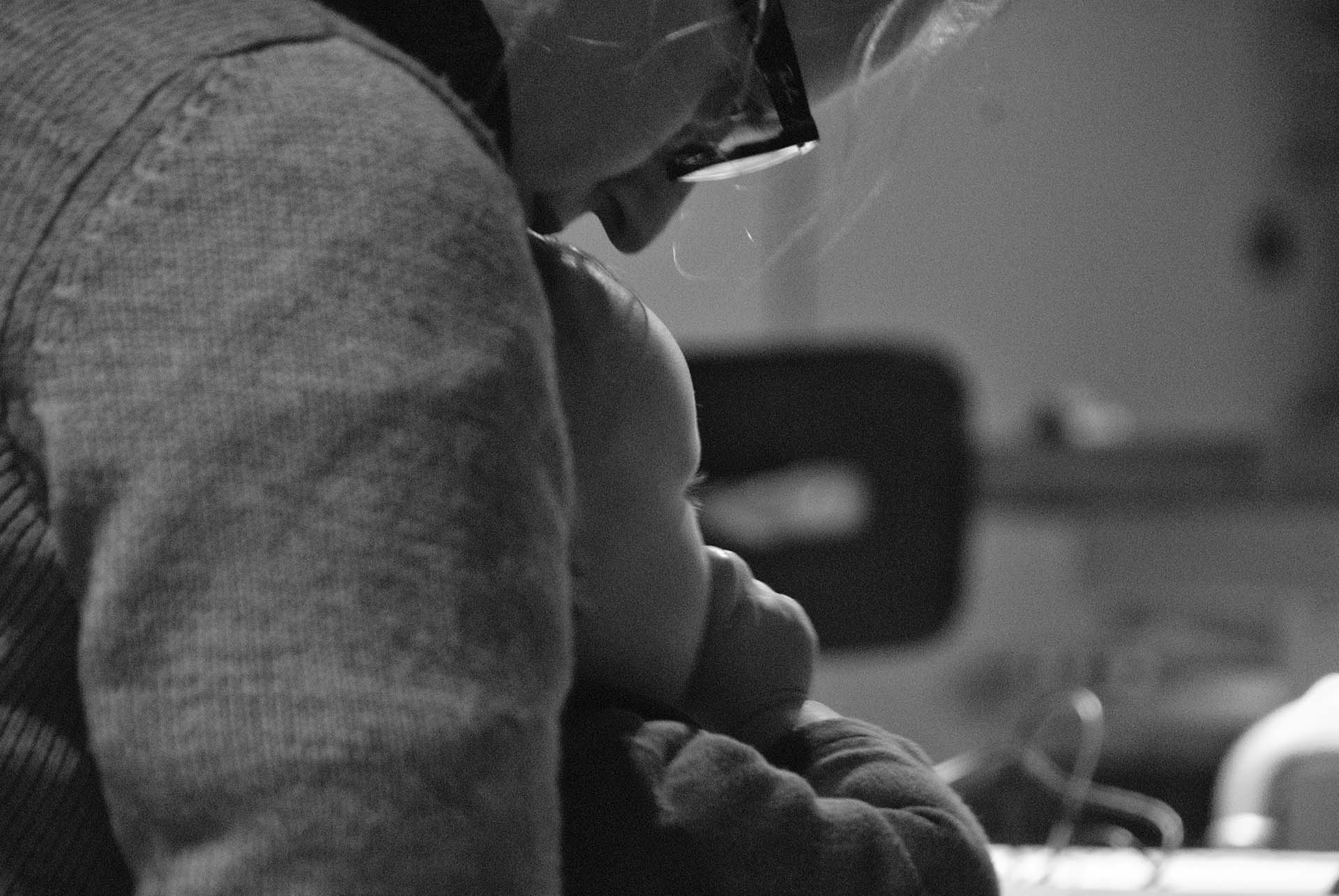Door Kim van Schie, journaliste en adoptiemoeder
Fotografie Ton Sondag
Fotografie Ton Sondag

Parents
Adoptive parents may come across problems as well. It is important to realise this and to know that you are probably not the only one. It is possible to find support from other adoptive parents. There are, for example, different Facebook groups for parents with children from certain countries, children with a certain special need, and single parents. Aftercare and professional help is also available for specific problems, especially when they do not seem like big problems yet.
Before the adoption
A number of aspiring adoptive parents decide to start the procedure because they cannot fulfil the desire to have children in the natural way. In that case it is possible that a lot of emotions need to be worked through first. A feeling of loss and mourning is not uncommon. The sorrow that exists regarding this does not need to be completely ‘gone’, but it helps when it is accepted so one can really enjoy this new form of parenthood and support their child optimally.
Alle vragen, opmerkingen en informatie die je op je af krijgt over adoptie kunnen soms overweldigend of zelfs beangstigend zijn.
Adoptive parents may come across problems as well. It is important to realise this and to know that you are probably not the only one. It is possible to find support from other adoptive parents. There are, for example, different Facebook groups for parents with children from certain countries, children with a certain special need, and single parents. Aftercare and professional help is also available for specific problems, especially when they do not seem like big problems yet.
Before the adoption
A number of aspiring adoptive parents decide to start the procedure because they cannot fulfil the desire to have children in the natural way. In that case it is possible that a lot of emotions need to be worked through first. A feeling of loss and mourning is not uncommon. The sorrow that exists regarding this does not need to be completely ‘gone’, but it helps when it is accepted so one can really enjoy this new form of parenthood and support their child optimally.
All questions, remarks, and information that are fired at one regarding adoption can be overwhelming or even scary. Do you know what you are getting yourself into? What can be expected from a life with an adopted child? What is the deal with attachment problems? From which country would you like to adopt? What is needed for that? Is it good for a child to take it away from their country of birth? Can you handle an older child? More than one child? Or perhaps a child with special needs? And what is the limit in that case?
These are essential questions that are hard to answer right away. Visiting official information meetings from Stichting Adoptievoorzieningen regarding different aspects of adoption can be helpful to get insight. Besides this, it is advisable to talk with as many healthcare professionals and experience experts (other adoptive parents as well as adult adoptees) as possible. Take your time to let all of those stories sink in, and be honest about how you feel about them and what your limits are. This is all in the interest of the child, because a good match with parents who know what they can expect and are really motivated is essential.
During the adoption
Depending on the country that one is adopting from, it can be expected that you will be confronted with distressing procedures: Long, or short waiting lists, suddenly needing to depart or months of uncertainty about when you will be meeting your child, a long stay abroad, or a very rapid transfer from the country of birth of your child to home. These are all factors that can be stressful. Being well prepared for this, learning to let go, and living in the moment can be helpful.
Your child needs to get used to you, but you also need to get used to your child. Although most parents feel intense love from the very first moment, it is not unusual for there to be doubts and uncertainties about that feeling. You need to fully get to know your child. There is no fixed manual, so you will need to give it time to figure things out. Which behaviour is connected to your child’s personality, and which behaviour is adoption-related? And how do you need to handle that? Your child may be aggressive, anxious, they may cling to you, or they may push you away instead. This could also influence the way you feel about the child and adoption. Sharing these feelings, openly and honestly, with those close to you or those who have experience, can feel as a relief and offer new insights.
To promote the attachment process it is recommended to ‘cocoon’ with your family for at least three months. This means being with the family without outsiders. This can be nice as well as difficult. It feels good that all of the attention only has to go to your child, but difficult because it is normal to want to share both highs and lows with those close to you. How will they react if you keep them at a distance? And how can this be arranged practically, for example, regarding work? These are all things that should be discussed with those involved beforehand, so you as well as those around you are prepared for what is going to happen.

After the adoption
When you are at home with your family, and the first adjustment period has passed, parenthood has really started. Finding a new rhythm for everyday life sometimes takes a lot of time. In the meantime, the development of your child and you as a family continues unabated.
All parents want to do everything as well as possible, but perfectionism may even be a more common trap for adoptive parents. An extensive feeling of responsibility, insecurities about parenthood, and the child, possible criticism from outsiders… All of these could cause one to set the bar (too) high for oneself.
Wanting to do things ‘right’ could cause the threshold for getting help to become higher. Asking for aftercare, no matter if it concerns a few small questions or issues, or larger problems, is not a sign of helplessness, but of strength. You do not have to do it alone. And when a ‘problem’ is tackled when it is still ‘small’, the results are usually better for you and your child, which will improve the everyday life of the whole family.
The childcare organisation and school will also have a big influence on your child’s life, and therefore on you as an adoptive parent. Do the people who will supervise your child understand what they need? Why they may react differently from other children in their class? And how does one handle that? It is possible to request professional help for this as well, to advise both you and the school.
So many professionals, so many opinions. Unfortunately, there is no comprehensive manual for adoptive parents. Listening to and observing your child, as well as following your intuition, are the most important tools.
Portretten van kinderen, adoptieouders en geboortemoeders die openhartig vertellen over de invloed die adoptie heeft op hun leven.
Op deze pagina komt binnenkort uitgebreide informatie en links over professionele zorg te staan.
Veilige hechting is geen vanzelfsprekendheid. Als een onveilige hechting zo vaak voorkomt, hoe erg is dat dan eigenlijk?